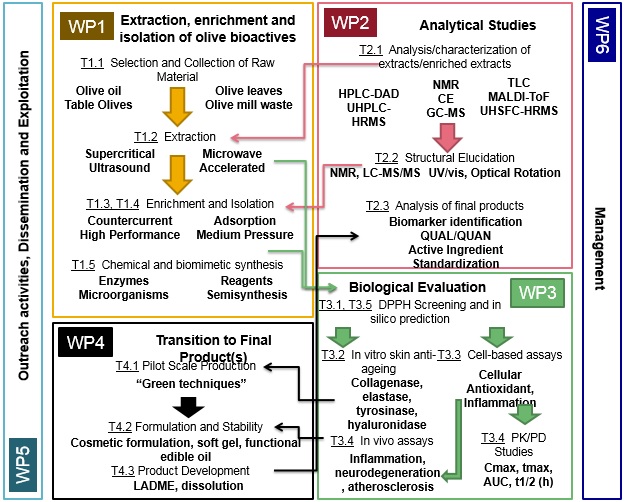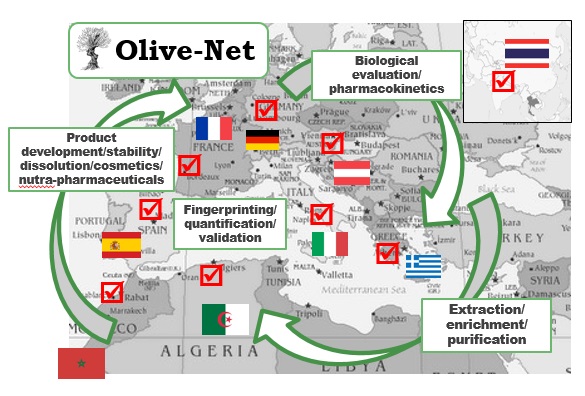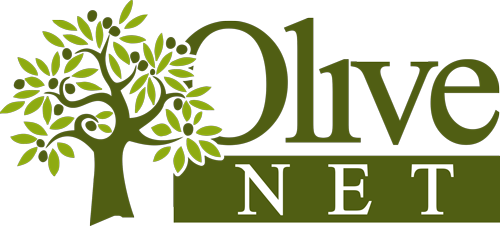In the context of Olive-Net, a detailed and thorough workflow has been conceived and constructed based on the foreseen secondments and staff effort. Olive-Net work plan has been divided in seven complementary work packages (WP1-WP7) and relative tasks. The overview of the research plan could be summarized as follows: The collection and selection of raw materials (products and by-products) coming from olive tree and olive processing industry will be realized in task 1 of WP2 (T2.1). All samples will be extracted with techniques and methodologies aiming to their secondary metabolites content. In principal, environmentally friendly extraction techniques will be applied (PLE, MAE, UAE, SFE) (task 2 of WP2). Enrichment techniques will aim to the production of extracts with a high percentage in specific compounds (task 3 of WP2). Selected extracts will be analyzed in detail for their phytochemical content (WP3). In parallel, specific and selected constituents of the extracts will be isolated applying conventional techniques (task 4 of WP2). Also, semisynthetic derivatives of those molecules will be produced by bio- and chemical transformations (task 5 of WP2). The structure elucidation of pure compounds will be realized by obtaining data from HRMS and NMR spectrometry (task 2 of WP3). After the generation of the extracts they will be screened with a fast cell free antioxidant assay (task 1 of WP4). Based on these results extracts will be selected to proceed to cosmeceutical, nutraceutical and pharmaceutical applications and the corresponding assays will prove their properties. Specifically, anti-ageing and skin-whitening assays will be performed (task 2 of WP4). Also cell based assays will support the antioxidant and anti-inflammatory properties (task 3 of WP4). Results from WP2, WP3 and tasks 1, 3 of WP4 will be carefully co-evaluated for the selection of the most promising that will be further proceed to in vivo assays of animal models of inflammation-related disease. PK/PD studies will be performed and correlated to in vivo studies (task 5 of WP4). In silico tools will support the biological activities of the compounds and assess their toxicity (task 6 of WP4). Taken into consideration the results from the biological tests (WP4), specific extracts and compounds will be selected for pilot scale production and development of final products (WP5). Selected extracts and pure compounds destined for pharmaceutical, nutraceutical and cosmeceutical will be properly formulated to give a range of innovative products. WP6 embraces all the activities required for the successful dissemination of the results of the project to general public and scientific communities. WP7 includes all the procedures required for the successful management of the project. Finally but most importantly, WP1 includes all the requirements concerning the ethics of the projects.
Workflow





